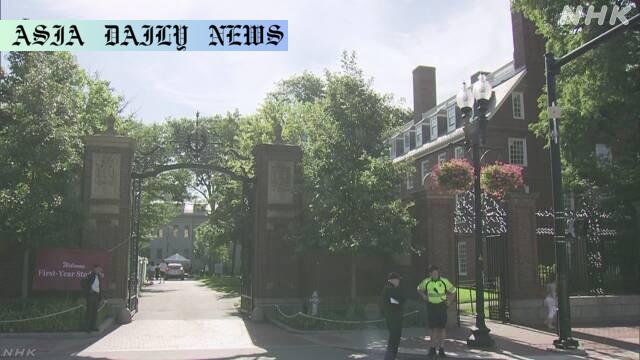Education: Japan’s Education Ministry urges universities to aid students impacted by recent US study barriers in unprecedented support bid.

Japan’s Educational Stand Amid US Restrictions
The Japanese government, through its Education Ministry, has recently demonstrated its commitment to safeguarding the academic aspirations of its citizens and international students. This initiative comes on the heels of sudden policy changes in the United States under the Trump administration, which sought to bar institutions like Harvard University from enrolling international students. Although these measures were temporarily blocked by a US district court, uncertainty still looms for students whose academic plans involve studying in the US.
Given the significant number of Japanese students who travel to the US for advanced studies—more than any other country—this policy shift has created widespread anxiety. Noticing the ripple effect, Japanese universities have begun stepping in, devising mechanisms that can provide a fallback option or transitional support to affected students.
Support Initiatives by Japanese Universities
Among the universities taking action, the University of Tokyo has indicated its intent to temporarily host students unable to continue their US education. This includes offering them access to select classes and issuing certificates to validate the credits earned. Other reputable institutions like Osaka University and Hokkaido University have also expressed interest in providing similar support mechanisms. Meanwhile, Tohoku University, the Institute of Science Tokyo, and Waseda University are reportedly assessing potential measures to bolster their aid efforts.
The Education Ministry’s written appeal to national universities underscores the importance of finding concrete and feasible solutions quickly. Such initiatives not only exhibit Japan’s educational flexibility but also reflect its readiness to overcome global challenges with resilience and solidarity.
Implications for International Education Policies
This development highlights broader concerns about international education policies and the unpredictability they present for students worldwide. For countries like Japan, which have strong ties with the US in education and research, such disruptions can strain relations between academic institutions. The proactive approach of Japanese universities sends a positive message—one that prioritizes the welfare of students above bureaucratic hurdles or geopolitical challenges.
In addition, these measures could also attract non-Japanese students stranded by the US policies, fostering cultural exchange within Japan’s education system. However, universities must be prepared to allocate resources appropriately, ensuring that their existing student bodies do not face inadvertent disadvantages due to the influx of new enrollees.
Charting a Supportive Path Forward
Although the situation remains fluid with legal and policy battles ongoing in the US, Japan’s swift response offers hope. The country’s commitment to educational inclusivity and its readiness to fill temporary gaps demonstrate the capability of nations to adapt and support students amid global uncertainties. It also serves as a reminder of education’s universal importance and the need for international collaboration to address emerging challenges.
As this story unfolds, other nations observing similar concerns might take cues from Japan’s proactive decision-making, paving the way for more resilient global education systems.
Commentary
Reflecting on the Importance of Proactive Action
The recent actions of Japan’s Education Ministry highlight what leadership truly means in the realm of education. Faced with the uncertainties brought about by geopolitical and policy shifts, Japan stepped forward not just to safeguard its own students but also to exemplify global empathy. This initiative not only helps students circumstantially but also sets a precedent for how countries can act in solidarity.
The decision to involve multiple universities, including some of the most prestigious ones like the University of Tokyo, signifies the gravity of the situation. By providing temporary accommodations, Japan has shown a readiness to mitigate international hurdles, reassuring students and their families. In times like these, having an alternative can mean the difference between pursuing academic dreams and abandoning them altogether.
Global Education – A Shared Responsibility
It is worth noting how Japan’s approach could inspire broader reforms. International studies are a cornerstone of cultural exchange and economic growth globally. When disruptions occur, they don’t just affect academic calendars; they impact individuals, nations, and ultimately, the global knowledge economy. Countries that act to buffer those effects take on a significant responsibility while also demonstrating their values on the world stage.
Japan’s steps could spur similar measures in other nations concerned with fostering international education. Collaboration among universities worldwide might further streamline credit transfers and enhance policy resilience during such challenges.
Challenges Remain, but the Path is Clear
Such significant moves are not without challenges. Resources and funding will remain ongoing concerns for Japanese institutions taking in displaced students. Additionally, sustainable strategies must consider the long-term impact on faculty, infrastructure, and existing student populations. However, every bold decision begins with a leap of faith. Japan’s intervention sparks hope and symbolizes a commitment to the global future of education, a future that doesn’t leave any student behind.


